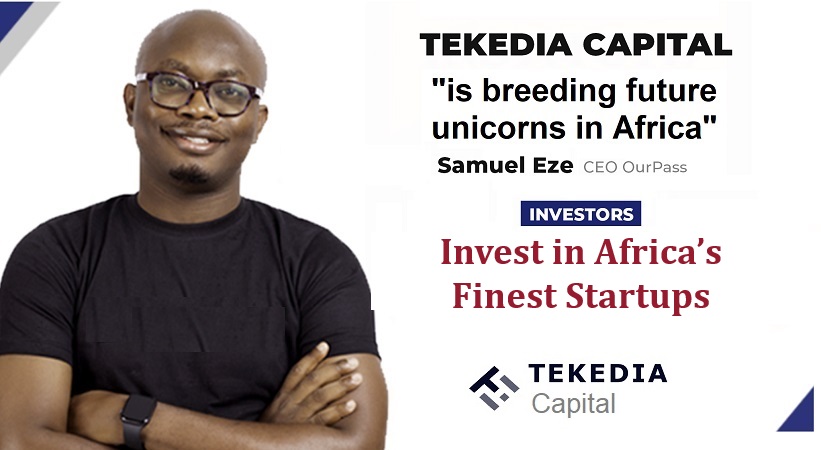News
Come investire in criptovalute senza acquistare criptovalute

Puoi ottenere esposizione alla criptovaluta senza acquistarne alcuna acquistando azioni di Bitcoin Spot ETF, Bitcoin Trust o ETP collegati a futures su criptovaluta. La Securities and Exchange Commission ha inoltre dato a tre borse il via libera per iniziare a quotare otto ETP Ether Spot nel maggio 2024.
Questi modi indiretti di investire in criptovalute sono molto più economici e forse meno rischiosi rispetto all’acquisto definitivo di criptovalute. Ecco cosa devi sapere se vuoi investire in criptovalute senza acquistare criptovalute.
Punti chiave
- Sebbene la criptovaluta esista da tempo, molti la considerano un investimento relativamente nuovo con un’importante curva di apprendimento.
- Investire direttamente nelle criptovalute può essere difficile a causa della loro volatilità e alcuni investitori preferiscono utilizzare investimenti più tradizionali.
- Puoi investire indirettamente in criptovalute attraverso fondi e azioni legate alle criptovalute.
- Le opzioni includono fondi negoziati in borsa (ETF) basati su criptovalute spot e futures.
Cos’è l’investimento indiretto in criptovalute?
Hai delle opzioni se non vuoi aprire un conto su uno scambio di criptovalute e acquistare criptovalute. Puoi investire indirettamente nella criptovaluta attraverso metodi tradizionali come azioni, fondi comuni di investimento e ETF.
Ci sono pro e contro da considerare, tra cui sicurezza, commissioni e rischio di perdite. Quando acquisti criptovaluta tramite terzi, tali fondi guadagneranno il loro mantenimento in qualche modo, quindi dovresti considerare eventuali costi aggiuntivi quando decidi se acquistare criptovalute utilizzando un metodo indiretto.
Ecco alcuni modi in cui puoi investire indirettamente nelle criptovalute.
ETF crittografici
Quando si cerca di ottenere un ampio accesso a una particolare classe di asset, il primo punto di riferimento sono solitamente gli ETF. Si possono trovare fondi di investimento che tracciano praticamente tutto, dall’oro allo S&P 500. Sfortunatamente, con la criptovaluta, è un po’ più complicato.
Dopo aver negato per molti anni richieste di ETF spot su criptovalute, la Securities and Exchange Commission (SEC), sotto la pressione di una decisione della Corte d’Appello DC del 2023, ha approvato i primi 11 nel gennaio 2024. In precedenza, il regolatore dava il via libera solo agli ETF che bitcoin di proprietà contratti futures. Eccotene alcune:
- ETF sulla strategia ProShares Bitcoin (BITO)
- ETF sulla strategia Valkyrie Bitcoin (BTF)
- ETF sulla strategia VanEck Bitcoin (XBTF)
- ETF sulla strategia Global X Blockchain e Bitcoin (PEZZI)
Ecco i primi ETF spot su Bitcoin essere approvato:
- ETF Bitcoin ARK 21shares (ARKB)
- Bitcoin Trust bit per bit (BITB)
- Fondo Fidelity Wise Origin Bitcoin (FBTC)
- ETF Franklin Bitcoin (EZBC)
- Fiducia Bitcoin in scala di grigi (GBTC)
- ETF Hashdex su Bitcoin (DEFI)
- ETF Invesco Galaxy Bitcoin (BTCO)
- Ishares Bitcoin Trust (IBIT)
- Fondo Valkyrie Bitcoin (BRRR)
- Vaneck Bitcoin Trust (HODL)
- Fondo Wisdomtree Bitcoin (BTCW)
Nel maggio 2024, la SEC ha approvato tre borse valori per quotare alcuni ETF Ether Spot. NYSE Arca, Nasdaq e Cboe BZX possono quotare e scambiare azioni di:
- Trust Ethereum in scala di grigi (NYSE Arca)
- ETF Bitwise su Ethereum (NYSE Arca)
- iShares Ethereum Trust (Nasdaq)
- VanEck Ethereum Trust (Cboe BZX)
- ETF ARK21 sull’Ethereum (Cboe BZX)
- ETF Invesco Galaxy Ethereum (Cboe BZX)
- Fondo Fidelity Ethereum (Cboe BZX)
- ETF Franklin Ethereum (Cboe BZX)
Ci sono dei problemi nell’investire in criptovalute in questo modo. In primo luogo, i contratti futures e le azioni ETF non offrono necessariamente gli stessi rendimenti degli asset target. In secondo luogo, gli ETF per le criptovalute possono essere complessi e avere commissioni che possono incidere sui tuoi potenziali rendimenti.
Le commissioni e gli investimenti sottostanti variano in base al fondo scelto, quindi assicurati di leggere attentamente il prospetto per sapere cosa stai ottenendo.
ETF sull’Ethereum
Una volta approvati gli ETF spot su Bitcoin, le richieste si sono fatte più forti affinché il token nativo di Ethereum, ether, ricevesse lo stesso trattamento. Gli ETF basati su Ether erano in grado di utilizzare solo contratti futures per tracciare il prezzo dell’etere piuttosto che detenere direttamente la valuta digitale, come possono fare gli ETF tradizionali e ora molti ETF Bitcoin. Tuttavia, la situazione è cambiata in seguito all’approvazione della proposta di scambio da parte della SEC nel maggio 2024.
Ai gestori patrimoniali piace VanEck, Grayscale e Fidelity hanno chiesto il permesso di lanciare ETF su Ethereum, che darebbero agli investitori esposizione alla seconda criptovaluta più grande del mondo tramite fondi regolamentati dalla SEC. Ciò probabilmente darebbe a Ethereum una maggiore liquidità, migliorerebbe il monitoraggio dei prezzi e porterebbe a commissioni potenzialmente inferiori rispetto a quelle che gli ETF basati sui futures possono offrire.
Altri paesi, incluso il Canada, sono stati più rapidi nell’adottare gli ETF spot sulle criptovalute.
ETF sulle criptovalute e ETP sulle criptovalute
Gli ETP sono strumenti finanziari che replicano i titoli sottostanti, un indice o altri prodotti finanziari negoziati in borsa. Possono essere acquistati e venduti durante la giornata di negoziazione, come le azioni. Gli ETF sono la forma più comune di ETP. Altri tipi di ETP sono gli exchange-traded notes, specializzati in titoli di debito, e gli exchange-traded commodity, che tracciano la performance di materie prime come metalli preziosi, prodotti agricoli e risorse energetiche.
Quando la SEC ha approvato gli ETF spot sul bitcoin nel gennaio 2024, sono stati classificati come ETP ai sensi del Legge sui titoli del 1933 piuttosto che ETF come definiti dal Legge sulle società di investimento del 1940. Pertanto, il termine ETP è un po’ un termine improprio, sebbene Investopedia abbia seguito l’uso più comune nella comunità degli investitori nonostante la determinazione della SEC.
Quali sono le implicazioni? Oltre ad avere un portafoglio meno diversificato, gli ETP sono disciplinati da regole leggermente diverse. La diversificazione e la tipologia delle attività detenute hanno avuto un ruolo in questa designazione. Con gli ETP su bitcoin, l’esposizione fisica spot viene data a una singola merce di criptovaluta. I fondi convenzionali, come altri ETF e fondi comuni di investimento, devono detenere una gamma più diversificata di attività. Registrati ai sensi del Securities Act del 1933, gli ETP non sono soggetti alle stesse restrizioni in materia di diversificazione e leva finanziaria degli ETF. Ciò fornisce maggiore flessibilità nei tipi di asset che possono detenere, comprese le criptovalute.
Sebbene gli ETP siano soggetti alle normative sui titoli, non offrono lo stesso livello di protezione degli investitori degli ETF. Gli investitori dovrebbero esercitare maggiore cautela e condurre un’accurata due diligence. Anche il trattamento fiscale degli ETF e degli ETP può differire. Gli investitori dovrebbero consultare i professionisti fiscali per comprendere le implicazioni fiscali dell’investimento in ETP crittografici. Infine, il mercato delle criptovalute in cui ora operano gli ETP crittografici (poiché devono scambiare token crittografici) non è regolamentato dalla SEC o dalla CFTC.
Criptovalute e titoli Blockchain
Un altro modo per investire in criptovalute senza acquistare token digitali è acquistare azioni di società che lavorano in blockchain o detengono criptovalute nei loro bilanci.
Le aziende specializzate nella tecnologia blockchain sono spesso coinvolte nel mining di criptovalute, nello sviluppo di software e in altri servizi basati sulla blockchain. I degni di nota includono Riot Blockchain (RIVOLTA), Canaan Inc. (POTERE), Tecnologie Blockchain HIVE (ALVEARE) e Bitfarm (BITF). Queste società presentano compromessi in termini di rischio e rendimento diversi rispetto a quelle che investono direttamente in criptovalute.
In alternativa, alcune società detengono criptovalute o sono direttamente coinvolte in esse. Ad esempio, Coinbase (MONETA), una società quotata in borsa, è uno degli scambi di criptovaluta più grandi e conosciuti. Al modulo 10-K del 31 dicembre 2023, deteneva più di 74.000 bitcoin, ether, solana e altre criptovalute.
In generale, con il calo dei prezzi delle criptovalute, anche i titoli correlati si trovano in difficoltà. Questa volatilità è uno dei rischi inerenti a questo settore, un punto chiave da ricordare quando si espone il proprio portafoglio a prodotti legati alle criptovalute. Considerati i rapidi cambiamenti nelle normative sulle criptovalute e nei movimenti di mercato, e come regola generale per gli investimenti, è prudente diversificare il tuo portafoglio per proteggerti dai rischi delle criptovalute e consulta un professionista finanziario di fiducia per rivedere i tuoi piani di investimento.
Esistono anche ETF che investono specificamente in società collegate alle criptovalute.
Criptovalute e il tuo 401(k)
Puoi investire una parte dei tuoi fondi pensione in criptovalute con il minimo sforzo. Nel 2022, Fidelity ha annunciato che i clienti avrebbero potuto aggiungere Bitcoin ai suoi 401(k) conti. Fidelity acquista le monete e le conserva in un conto di risorse digitali.
Questo è stato un passo importante verso la piena diffusione delle criptovalute attraverso i tradizionali portafogli di investimenti pensionistici. In definitiva, spesso spetta al tuo datore di lavoro decidere il portafoglio specifico di fondi a tua disposizione per il tuo 401 (k).
Premi su carta di credito
I premi con carta di credito sono un metodo finale per riempire il tuo portafoglio di criptovalute senza aprire il tuo fiat portafoglio. Diverse carte ti consentono di guadagnare criptovalute quando scorri, tocchi, immergi, fai clic o fai qualsiasi altra cosa per utilizzare una carta di credito per il pagamento.
Esempi di carte di credito in criptovaluta includono la carta di credito Gemini e le carte offerte dagli scambi Crypto.com e Coinbase.
Alcune carte, come la carta di credito Venmo, offrono opzioni di riscatto flessibili, inclusa la criptovaluta. Quando guadagni criptovalute come premio su una carta di credito, tu investire in criptovalute senza acquistare criptovalute.
Vale la pena investire nelle criptovalute?
Ci sono molti rischi quando si investe in criptovalute: frodi, attacchi informatici, perdite significative derivanti dalle fluttuazioni dei prezzi, cambiamenti normativi e altro ancora. È meglio parlare con un consulente finanziario che abbia familiarità con la criptovaluta per sapere se è adatta alla tua situazione finanziaria e al tuo portafoglio.
Come investono i principianti nella criptovaluta?
Conoscere come investire in criptovalute può essere intimidatorio, data la complessità della tecnologia blockchain, l’hype che la circonda e le numerose valute disponibili. Il primo passo è aggiornarsi sui fondamenti delle criptovalute, su come la tecnologia blockchain le sostiene, sul tipo di portafoglio crittografico di cui avrai bisogno e sulle differenze tra criptovalute come bitcoin, ether e altcoin. Risorse affidabili come Investopedia e i corsi offerti dalle università, molti dei quali disponibili gratuitamente online, possono essere preziosi. Piattaforme come Coinbase o Binance potrebbero essere una buona scelta per i tuoi primi passi nel mercato poiché dispongono di interfacce e risorse accessibili per guidarti. Una volta entrato, rimani aggiornato sulle notizie crittografiche e sugli sviluppi normativi.
In quali criptovalute è meglio investire adesso?
Investire in criptovalute comporta molti rischi, il più diffuso è la perdita di capitale dovuta a forti oscillazioni dei prezzi. Se ritieni di dover investire in criptovaluta, è meglio parlare con un consulente finanziario che ne abbia familiarità e scoprire se è adatto alle tue circostanze finanziarie. Inoltre, è essenziale ricordare che non dovresti mai investire più di quanto puoi permetterti di perdere, soprattutto quando investi in criptovaluta.
La linea di fondo
Investire direttamente in criptovaluta richiede la creazione di un exchange e la ricerca di modi per conservare le tue monete digitali in modo sicuro. Può anche significare potenzialmente avere molti soldi vincolati in un asset volatile.
Fortunatamente ci sono delle alternative. Puoi investire indirettamente in criptovalute tramite ETF che possiedono contratti futuri legati ai prezzi valutari, ETF bitcoin che cartolarizzano partecipazioni in bitcoin o acquistando azioni di società coinvolte nell’estrazione di criptovalute, nello sviluppo di software e altri servizi. In alternativa, puoi prendere in considerazione una carta di credito con premi in criptovaluta o vedere se il tuo datore di lavoro offre questa classe di asset tramite il tuo 401 (k).
I commenti, le opinioni e le analisi espresse su Investopedia sono solo a scopo informativo. Leggi il nostro garanzia ed esclusione di responsabilità per maggiori informazioni. Alla data in cui è stato scritto questo articolo, l’autore non possiede criptovaluta.
News
US Cryptocurrency Rules Delayed by ‘Never-Ending’ Lawsuits

Ripple CEO says cryptocurrency industry still seeking regulatory clarity from US
Speaking to Bloomberg News on Wednesday (July 17), Author: Brad Garlinghouse he said America is behind behind other countries which have already adopted cryptocurrency regulations.
“What we’re seeing, where it’s the UK, Japan, Singapore… even the European Union, more than two dozen countries have come together to provide a framework for cryptocurrency regulation,” Garlinghouse said.
“It’s frustrating that we as a country can’t get that regulatory framework in place. And instead, we have this never-ending lawsuit coming from the SEC that doesn’t really address the problem.”
Ripple has been the target of some of these legal disputes. Securities and Exchange Commission (SEC) sued the company in 2020, accusing it of conducting a $1.3 billion operation offering of unregistered securities tied to its XRP token.
However, last year a judge ruled that only Ripple’s institutional sales of XRP, not retail sales, violated the law, a decision widely seen as a victory for the cryptocurrency industry.
As PYMNTS noted at the time, that ruling has “far-reaching repercussions impact across the digital asset ecosystem, which has long maintained that its tokens do not represent securities contracts.”
However, Garlinghouse told Bloomberg on Wednesday that the company cannot wage multimillion-dollar legal battles over each token.
He spoke to the news agency from the Republican National Convention in Milwaukee, where the party is backing the candidacies of former President Donald Trump and Ohio Sen. J.D. Vance, both of whom are considered pro-cryptocurrency.
But Garlinghouse argued that cryptocurrencies “should not be a partisan issue,” and noted that he had recently attended a conference in Washington that included Democrats, including White House officials.
“I think they were there, listening to the industry… it was refreshing to start having that conversation,” she said.
President Joe Biden earlier this year he vetoed a measure which would have ended the SEC’s special rules for crypto-asset custodians. This legislation was supported by both the digital asset industry and the banking industry.
Ripple early this year donated $25 million to the cryptocurrency industry’s super PAC Fair Smoothiewith Garlinghouse stating at the time that such donations would continue every year, as long as the industry had its detractors.
Second Open SecretsWhich monitor spending For campaigns, the PAC has spent $13.4 million this year, much of it to help defeat Rep. Katie Porter’s (D-Calif.) U.S. Senate campaign.
News
The Future of Cybersecurity in the Cryptocurrency Industry

The cryptocurrency space has had a tumultuous journey, with its fair share of ups and downs. As we look to the future, one area that remains a constant focus is cybersecurity. The digital nature of cryptocurrencies makes them inherently vulnerable to cyber threats, and as the industry evolves, so does the landscape of potential risks.
In 2022, the cryptocurrency market faced significant challenges, with over $2 trillion in market value lost. This event served as a wake-up call for the industry, highlighting the need for robust cybersecurity measures. The future of cryptocurrency security is expected to see a shift towards more regulated and established institutions taking the reins of crypto technology and blockchain infrastructure.
The decentralized nature of cryptocurrencies offers numerous benefits, such as transparency and financial inclusion. However, it also introduces unique security challenges. The risk landscape is filled with threats such as hacking, phishing, ransomware attacks, malware, and social engineering. These threats not only lead to financial losses, but also damage the reputation and trust within the cryptocurrency ecosystem.
Mini-MBA Tekedia edition 15 ((September 9 – December 7, 2024) started recordings; Register today for discounts reserved for early bird customers.
Tekedia AI in Business Masterclass Opens registrations Here.
Join the Tekedia Capital Syndicate and IInvest in Africa’s best startups Here.
The decentralized nature of cryptocurrencies offers many benefits, but it also presents unique security challenges. Cyber risks such as hacking, phishing, and ransomware pose threats to the integrity of digital assets. The infrastructure that supports cryptocurrencies is not immune to vulnerabilities, including smart contract flaws and exchange hacks.
To address these vulnerabilities, the infrastructure that supports cryptocurrencies must be strengthened. Smart contract vulnerabilities, exchange hacks, wallet breaches, and flaws in the underlying blockchain technology are significant concerns that must be addressed to ensure the security and integrity of digital assets.
As cybercriminal tactics and techniques become more sophisticated, the cryptocurrency industry must stay ahead of the curve. The future will likely see more targeted attacks, exploiting weaknesses in infrastructure, networks, and human factors. This requires a proactive and multifaceted approach to cybersecurity.
To mitigate these risks, several measures must be adopted:
Strengthening security measures: Developers, exchanges, and wallet providers must improve security protocols, use strong encryption, implement multi-factor authentication, and conduct regular security audits.
Education and awareness: Users should be educated on best practices for protecting their digital assets, including using strong passwords, recognizing phishing attempts, and using hardware wallets for secure storage.
Looking ahead, the cryptocurrency industry is expected to see an increased focus on robust security measures. Blockchain projects and exchanges are likely to invest in advanced encryption techniques and decentralized storage solutions to protect user assets. The future impact of cyber risk on cryptocurrencies will depend on the collective efforts of stakeholders to address vulnerabilities and strengthen security measures.
Collective efforts by stakeholders in the cryptocurrency space are crucial to address vulnerabilities and strengthen security measures. While challenges persist, advances in cybersecurity technologies and practices offer hope for a more secure and resilient cryptocurrency ecosystem.
The future of cybersecurity in the cryptocurrency industry depends on finding a balance between innovation and regulation. It requires a collaborative effort from all parties involved, from developers to end users, to create a secure environment that fosters trust and growth in the industry. As we move forward, it is critical that lessons learned from past events guide the development of stronger security measures, ensuring the longevity and stability of cryptocurrencies as a vital part of the modern economic toolkit.
Like this:
Like Loading…
News
Bullish XRP and RLBK price predictions rise, outpacing the broader cryptocurrency market, prompting Shiba Inu holders to switch!

Bitcoin’s one-week surge from $60,000 has pushed other cryptocurrencies into an uptrend. However, for many altcoins, this trend has been temporary. Altcoins such as XRP and Shiba Inu (SHIB) have experienced price drops. However, Rollblock, a new altcoin on the Ethereum blockchain, has thrived during this period, attracting thousands of investors looking for long-term growth.
XRP’s Nearly 30% Growth Over Last Week Drops as Selling Pressure Increases
XRP is seeing further price decline as Ripple investors withdraw their profits from the token. The surge in XRP’s price to $0.64 in the past week has provided investors with a perfect opportunity to increase their returns in the short term. With the ongoing sell-off in XRP, XRP has jumped over 8% in the past day and is now trading at $0.59. However, analysts tracking XRP indicators predict that XRP could still extend its gains by over 30% in the coming weeks.
Shiba Inu (SHIB) marks its third consecutive day of losses
Shiba Inu (SHIB) is in a period of adjustment after a week of strong gains. In the last 24 hours, SHIB has seen a jump of over 7%, reflecting a natural market fluctuation. Analysts are observing a death cross on the Shiba Inu chart, which historically signals the potential for future opportunities as the market stabilizes. As investors explore new possibilities, some are diversifying into promising altcoins like Rollblock (RBLK) to strategically rebalance their portfolios and capitalize on the emerging trend.
Rollblock (RBLK) Up Another 7% as New Investors Join Pre-Sale
Rollblock (RBLK) has taken the cryptocurrency market by storm, having attracted investors from more popular altcoins like Shiba Inu (SHIB) and XRP. Rollblock’s growth is attributed to its utility in the $450 billion global gaming industry.
Rollblock aims to use blockchain technology to bridge the gap between centralized and decentralized gambling. With blockchain technology, Rollblock secures every transaction in its online casino, providing transparency and convenience to millions of players who are uncomfortable placing bets on other iGaming platforms.
This innovative use of blockchain technology in the industry has grown Rollblock to over 4,000 new users in less than two months. With plans to add sports betting, this number is expected to grow exponentially in Q3.
Rollblock uses a revenue sharing model that splits up to 30% of its casino’s weekly profits with token holders. This happens after Rollblock buys back $RBLK from the open market and uses half of it for rewards. The other half is burned to increase the price of $RBLK.
Rollblock price has seen four increases in the past month with $RBLK tokens now selling for $0.017. Analysts predict that at the current growth rate, Rollblock could increase by over 800% before the presale ends. For investors looking for a long-term token with growth potential, phase four is the best time to buy Rollblock before its price skyrockets!
Discover the exciting Rollblock (RBLK) pre-sale opportunities now!
Website:https://Rollblockpresale.io/
Social: https://linktr.ee/Rollblockcasino
No spam, no lies, just insights. You can unsubscribe at any time.
News
Texas Crypto Miners Turn to AI as Crypto Declines

As cryptocurrency mining becomes less profitable, Texas cryptocurrency mining companies are switching to supporting artificial intelligence companies.
Bitcoin miners, with their sprawling data centers and access to significant energy resources, are ideally suited for computationally intensive AI operations, and as cryptocurrency mining becomes less profitable, companies see this shift as a logical answer to their problems.
On Thursday, Houston-based Lancium and Denver-based Crusoe Energy Systems announced a multibillion-dollar deal to build a 200-megawatt data center near the West Texas city of Abilene to support advanced artificial intelligence applications such as medical research and aircraft design, CNBC reported. The plant represents the first phase of a larger 1.2 gigawatt project.
Lancium and Crusoe’s move into AI mirrors a broader trend among bitcoin miners. The combined market capitalization of the top U.S.-listed bitcoin miners hit a record $22.8 billion in June. Companies like Bit Digital and Hut 8 are diversifying into AI, with Bit Digital securing a $92 million annual revenue deal to supply Nvidia GPUs and Hut 8 raising $150 million to expand its AI data center.
But the growing popularity of these operations also presents challenges, particularly for the Texas power grid. Last month, the Electric Reliability Council of Texas announced that the state is expected to nearly double its energy production by 2030 to meet the high energy demands of data centers and cryptocurrency operations.
Lieutenant Governor Dan Patrick expressed concern about the projections.
“Cryptocurrency miners and data centers will account for more than 50% of the additional growth. We need to take a close look at these two sectors,” He wrote on Twitter/X. “They produce very few jobs compared to the incredible demands they place on our network. Cryptocurrency miners could actually make more money selling electricity to the network than they do from their cryptocurrency mining operations.”
Analysts predict significant growth in data center power capacity, which is expected to account for up to 9% of U.S. electricity consumption by 2030.
The operations also pose challenges for nearby cities. Earlier this month, TIME reported that a crypto-mining facility was seriously compromising the health of residents in the city of Granbury. TIME reported more than 40 people with serious health problems, including cardiovascular disease, high blood pressure and hearing loss. At least 10 of the residents needed to go to the emergency room or an urgent care facility.
The disturbances were caused by the extreme noise generated by the crypto-mining facility’s fans, which are used to keep the machines cool. While the proposed data center in Abilene would use liquid cooling systems, it’s still unclear whether the facility’s operations would pose a health risk to local residents.
-

 Nfts10 months ago
Nfts10 months agoShardLab Launches ZK-Based Tool for Digital Identity and NFT Vouchers
-

 News12 months ago
News12 months agoWallet recovery firms are abuzz as stranded cryptocurrency investors panic in the bitcoin boom
-

 Bitcoin9 months ago
Bitcoin9 months agoBitcoin, Ethereum, Solana and Cryptocurrency Markets Look Ready to ‘Send’ as Stars Align, According to Investor Chris Burniske
-

 Altcoins9 months ago
Altcoins9 months agoThree Altcoins Poised for Significant Growth in 2024: ETFS, OP, BLAST
-

 Altcoins9 months ago
Altcoins9 months agoAccumulate these altcoins now for maximum gains
-

 Nfts9 months ago
Nfts9 months agoOG Crypto Artist Trevor Jones Unveils Groundbreaking Collection of Ordinals | NFT CULTURE | NFT News | Web3 Culture
-

 Bitcoin9 months ago
Bitcoin9 months agoBillionaires are selling Nvidia stock and buying an index fund that could rise as much as 5,655%, according to some Wall Street analysts
-

 Videos12 months ago
Videos12 months agoLIVE FOMC 🚨 Could be CATASTROPHIC for Altcoins!
-

 Videos11 months ago
Videos11 months agoSTOCK MARKET FUD! ⚠️ [Why This Is GREAT For Bitcoin Traders!]
-

 Videos12 months ago
Videos12 months agoATTENTION all cryptocurrency traders! [This Altcoin Dump Changes Everything]
-

 Videos12 months ago
Videos12 months agoAttention: a historically significant BITCOIN signal has just appeared!
-

 Altcoins10 months ago
Altcoins10 months agoXRP, Shiba Inu, Cardano, Solana mega bounce imminent as Altcoin bottom remains strong ⋆ ZyCrypto







